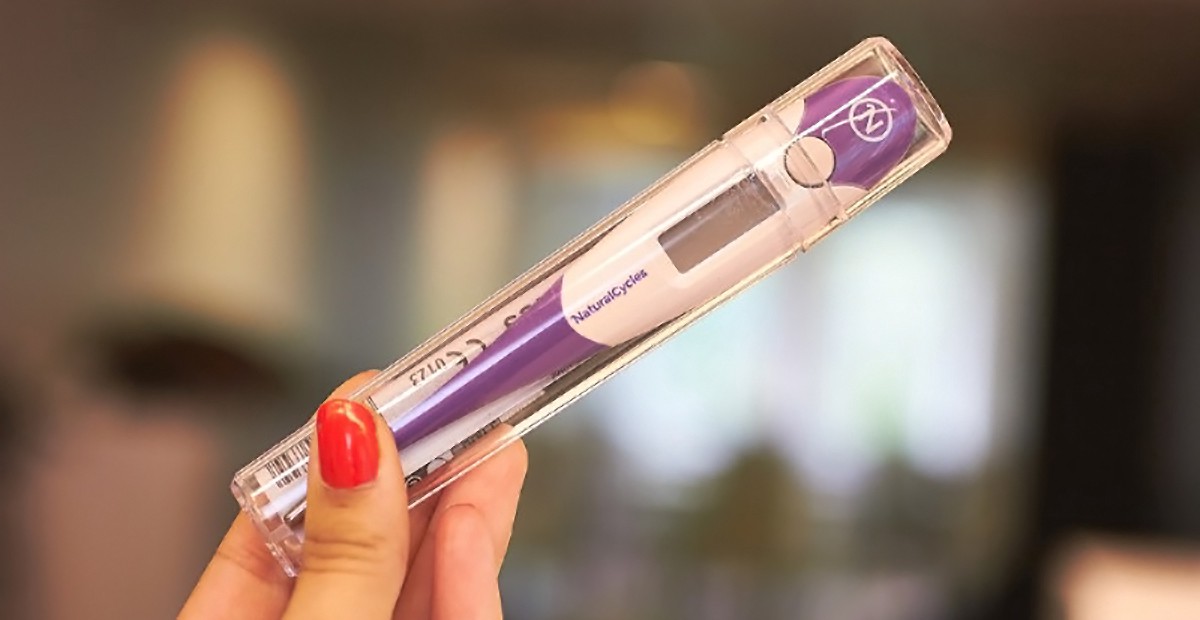

Femtech is experiencing a backlash. In January, Sweden’s Medical Products Agency launched an investigation–which is still ongoing–into the Swedish contraceptive app Natural Cycles, after a Stockholm hospital found that of the 668 women seeking abortions there this year, 37 had been using the app.
Natural Cycles asks users to record their body temperature and returns information on when they can supposedly have unprotected sex without getting pregnant–essentially, a hi-tech version of the “rhythm method.” Last week, in a powerful piece for the Guardian, Olivia Sudjic shared the difficulties she faced using the app–and the traumatic fallout when it failed. The Advertising Standards Authority in the U.K. is also now investigating Natural Cycles over its claims of being clinically-proven as effective as other forms of contraception.
Much of the current criticism of period-tracking apps like Natural Cycles has focused on these doubts over their efficacy, as well as questionable social media “influencer” marketing that uses glamor to convince women to stop using other contraceptives. There’s been less discussion, however, about the potentially harmful implications of women sharing data about their reproductive health with the corporations running these services.
Natural Cycles is uniquely certified as a contraceptive by the EU, but it’s just one of many period-tracking apps that collect incredibly sensitive information. Users of these various apps can be expected to enter information about the timing of their periods, their cervical mucus consistency, whether they are trying to conceive or prevent pregnancy, when they have sex, their use of other forms of contraception, previous abortions or miscarriages, orgasm frequency, preferred sex positions, and even their partners’ masturbation habits.
Information of this nature has a history of being used to control women. In China in the 1970s, as part of birth control measures predating the one-child policy, birth planning officers in each neighborhood kept detailed records of women of childbearing age. These records included women’s past births, their use of contraception, and the timing of their menstrual cycles. Women who became pregnant without the permission of the state were harassed into getting abortions, and families with babies born “over-quota” would be denied access to ration coupons, schooling, and other essential social programs.
A 2006 study found that evidence relating to a complainant’s sexual history is raised in two-thirds of sexual assault trials in England and Wales; a similar proportion is true in Ireland, where sexual histories are often used to determine whether the alleged victim displayed “promiscuity.” Some Irish cases have even heard evidence on whether the victim was using birth control to infer whether they consented to sexual intercourse.
The case of Welsh soccer player Ched Evans is a stark example of the use of a woman’s sexual histories in a rape trial. After Evans was convicted of the rape of a 19-year-old woman–who the prosecution argued was too intoxicated to consent–his friends and family offered a reward of £50,000 for information that would lead to his acquittal. In the subsequent retrial, Evans’ lawyers argued that details of her encounters with other partners–including the language she had used during sex and her preferred sex positions–bore such close resemblance to her encounter with Evans that they demonstrated her consent. Evans was acquitted and he returned to playing soccer professionally. The woman’s anonymity was broken on social media, and she was subjected to so many abuse and death threats that she was forced to her to change her identity.
Could the sexual history information collected by period trackers be used by governments, corporations, or legal professionals to control or persecute women? This data is already being shared with advertisers and data brokers, and the apps’ privacy policies leave large uncertainties about who exactly has access to users’ data, directly or indirectly.
Natural Cycles’ privacy policy states that it shares users’ data with “business partners, agents, and affiliates.” Furthermore, data could be disclosed if required by “legal, regulatory, or other legislation.” Users’ data could also be transferred to another company in the event of Natural Cycles being sold. In a list of “Data Q+As” sent to me by a PR representative from Natural Cycles, the company states that when data is shared with third parties, it’s anonymized. This would be heartening, were it not for the fact that the re-identification of anonymized data is a widespread and surprisingly easy practice.
Glow, which describes itself as “the largest fertility community in the U.S., populated by over 10 million women,” makes two fertility apps: Glow, and Eve by Glow. In 2016, the company came under fire after it was revealed that a glitch in one of its apps required only an email address to reveal a user’s sexual history. Glow is part of the startup lab HVF, founded by ex-Paypal executive Max Levchin, who in the past has referred to data as the “most under-exploited commodity.” HVF’s LinkedIn page explains that they search “relentlessly for opportunities that create value by leveraging data.” This “value” is presumably not limited to the satisfaction a user of one of their apps feels when they predict premenstrual cramping–but rather likely includes the expected return on the $23m venture-capitalist investment in the company.
We often pay for access to technology services with our personal, private information: most of us hand it over willingly when we sign up to websites and apps, rarely reading the terms and conditions. We know our data could end up in the laps of marketing companies–but we click “accept” anyway. Clue, a period-tracking app based in Berlin, has removed this transactional demand for users’ data. The company’s privacy policy states that they share information with third parties, but Grégoire Marino, Clue’s trust and safety lead, explained to me that the app allows the use of their service without creating an account. A user’s data can be stored locally on a phone rather than being shared with the company. Neither Natural Cycles nor either of the apps provided by Glow offer this option.
The risks of using these apps go far beyond their efficacy as contraceptives. In sharing data about their fertility and sexual histories, users are surrendering information about reproductive freedoms–having sex outside of marriage, choosing when to use contraceptives, having access to safe and legal abortions–that are denied to women in many countries, and under threat in others. The potential for the data harvested by femtech companies to be used for the control or persecution of women is perhaps not as small as we would hope.


How We Get To Next was a magazine that explored the future of science, technology, and culture from 2014 to 2019. This article is part of our Vital Signs section, on the future of human health. Click the logo to read more.
